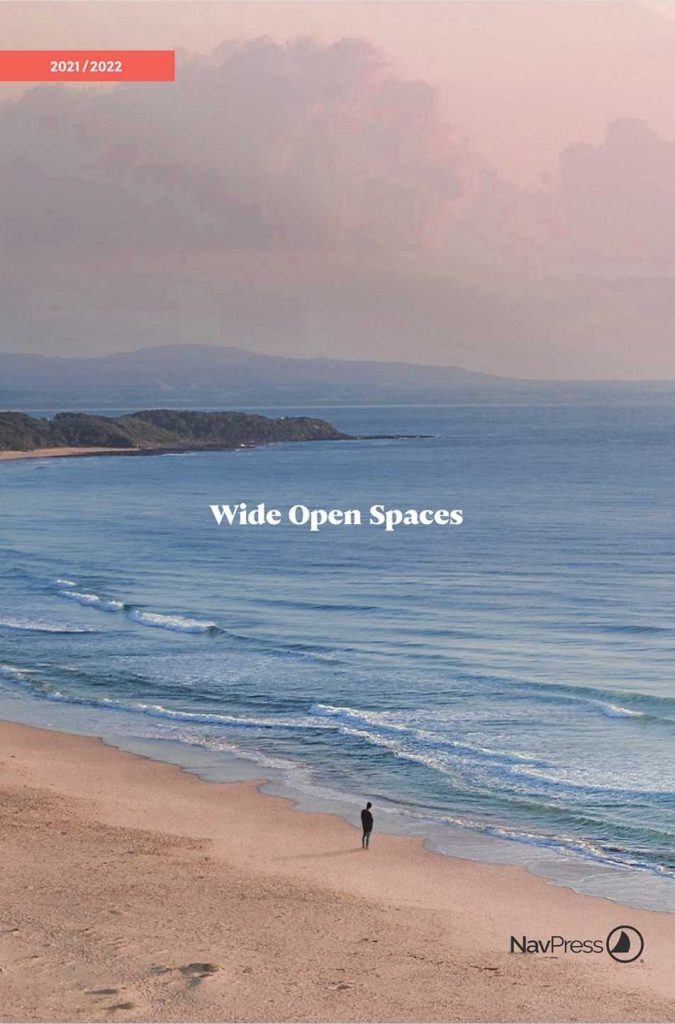Our most recent NavPress catalog is very pretty. Most catalogs can’t say that about themselves and ours is no different because it is, as it happens, an inanimate object. But I say it without embarrassment. NavPress has a pretty, pretty little catalog.
Our designer Barry was inspired in his approach to the catalog by the apostle Paul’s words in his letter to the Romans, as interpreted in The Message: “We throw open our doors and discover … the wide open spaces of God’s grace and glory.” The phrase, and Barry’s visualization of it, captivated all of us, frankly: It’s an idea that shows up repeatedly throughout the Scriptures and lands particularly impactfully here deep in our second year of a global pandemic. We crave an end to this time of being cramped into corners. We long to stand unmasked in the company of those we love. We wish the world were a more wide open space.
We often overspiritualize things, but in this case I think the temptation is to underspiritualize. We need more than just spatial expansiveness to recover from this worldwide disruption. We need ourselves to be expanded.
That is much easier said than done. But in a sense, expansion is the agenda of every book with the audacity to call itself Christian:
They seek an expanded imagination for the power of God to intervene in our lives.
They seek an expanded heart for neighbors, strangers and even enemies, transforming fear and spite into grace and mercy.
They seek an expanded impact for the words of God on us individually and collectively, the way we govern ourselves and the way we order our society.
They seek an expanded soul—filled to overflowing with the abiding presence of God.
(Yes, I know, no book actually calls itself Christian or seeks anything. Every book is an inanimate object. Just work with me here for a minute.)
As readers of Christian books, we don’t merely seek these expansions; we expect them. They are all aspects of what we consider the normal Christian life. That expectation can feel like a burden, as though it is our job to expand ourselves in order for God to love us, for Jesus to save us, for the Spirit to take up residence in us. And of course, we do have a part to play in our own expansion.
But as it happens, our expansion is not our work. Our part to play is something different. Christian books are never, in the truest sense, self-help books. Christian books are written with the understanding that among the many things God is, God is our help.
The Spirit intercedes for us.
The Father provides for us.
Jesus died for us.
Our help— the wide open spaces of God’s grace and glory—comes from God, not us. Our part to play, at its most basic, is simply to fear God, by which the Scriptures mean to allow ourselves to be awed by God and to take him seriously with every encounter. “His mercy flows in wave upon wave,” sings Mary the mother of Jesus, “on all who are in awe of him.” “The Fear-of-God,” echoes the Psalmist, “expands your life.”
It’s that promise of expansion, I think, that makes this year’s catalog so especially attractive. We want the promise because we’re tired of the alternative. We want it because we were created for it. And wanting it, it turns out, is the first step toward getting it.
Browse the NavPress Catalog



